Author Photo And Bio
Josip writes: This is not an absolute list, and if I wrote it a year ago it would be different, and if I write it a year from now, it will be different. And even this afternoon, I might think of different books. . . Anyway, these I will continue to relish:
 1. The Brothers Karamazov by Fyodor Dostoevsky (1880). A total novel: murder mystery, novel of ideas, romance, tragedy, comedy. . . The first seventy-pages are slow, and then the action and tensions build up—sort of the reverse of most novels today, which seem to open with a bang and fizzle out.
1. The Brothers Karamazov by Fyodor Dostoevsky (1880). A total novel: murder mystery, novel of ideas, romance, tragedy, comedy. . . The first seventy-pages are slow, and then the action and tensions build up—sort of the reverse of most novels today, which seem to open with a bang and fizzle out.
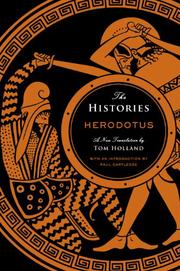 2. The Histories by Herodotus (450s – 420s BCE). A great anthology of anecdotes, stories, histories, observation, from the father of history and lies.
2. The Histories by Herodotus (450s – 420s BCE). A great anthology of anecdotes, stories, histories, observation, from the father of history and lies.
 3. The Radetzky March by Joseph Roth (1932). If your last name is Roth, you are bound to be an excellent writer. Joseph Roth is my favorite Roth—this is a wonderful novel about the decadence of Austria-Hungary at the start of World War One, full of irony and melancholy.
3. The Radetzky March by Joseph Roth (1932). If your last name is Roth, you are bound to be an excellent writer. Joseph Roth is my favorite Roth—this is a wonderful novel about the decadence of Austria-Hungary at the start of World War One, full of irony and melancholy.
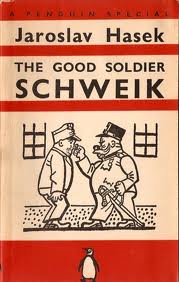 4. The Good Soldier Svejk by Jaroslav Hasek. A great precursor of anti-war novels, comic as hell (well, hell is probably not this funny). . . Catch 22 and Slaughterhouse Five are descendants of this one.
4. The Good Soldier Svejk by Jaroslav Hasek. A great precursor of anti-war novels, comic as hell (well, hell is probably not this funny). . . Catch 22 and Slaughterhouse Five are descendants of this one.
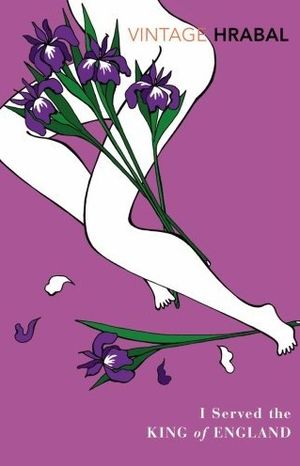 5. I Served the King of England by Bohumil Hrabal (1971). Delightful and unpretentious Czech picaro novel full of humor also in man ways akin to Old Soldier Svejk.
5. I Served the King of England by Bohumil Hrabal (1971). Delightful and unpretentious Czech picaro novel full of humor also in man ways akin to Old Soldier Svejk.
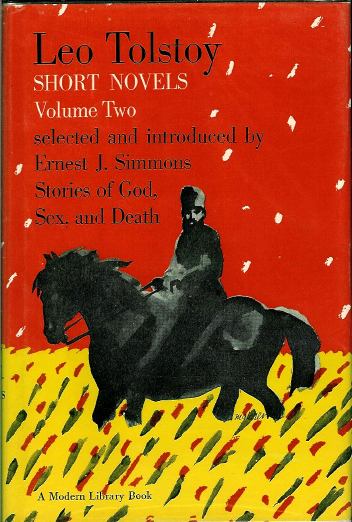 6. Novellas by Leo Tolstoy. Tolstoy was an amazing novelist, but an even better novellaist. Father Sergius, Death of Ivan Illych, Master and Man, The Devil, The Kreutzer Sonata. . . all mind-blowing. You can put them in one book, shorter than War and Peace.
6. Novellas by Leo Tolstoy. Tolstoy was an amazing novelist, but an even better novellaist. Father Sergius, Death of Ivan Illych, Master and Man, The Devil, The Kreutzer Sonata. . . all mind-blowing. You can put them in one book, shorter than War and Peace.
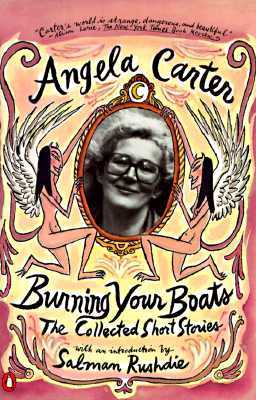 7. Burning Your Boats: The Collected Short Stories by Angela Carter. What beautiful language, what imagination!
7. Burning Your Boats: The Collected Short Stories by Angela Carter. What beautiful language, what imagination!
 8. Slaughterhouse-Five by Kurt Vonnegut (1969). Such a slim novel, yet it accomplishes a serious look at a historical event, satire, flights of imagination, confession and autobiography—a great mix of genres that give you the wealth of something that’s several thousand pages long. Supposedly it was several thousand pages initially, and Vonnegut cut it down to two hundred, and he illustrated thereby what Elie Wiesel says: “There is a difference between a book of two hundred pages from the very beginning, and a book of two hundred pages which is the result of an original eight hundred pages. The six hundred pages are there. Only you don’t see them.” The six thousand pages are still there!
8. Slaughterhouse-Five by Kurt Vonnegut (1969). Such a slim novel, yet it accomplishes a serious look at a historical event, satire, flights of imagination, confession and autobiography—a great mix of genres that give you the wealth of something that’s several thousand pages long. Supposedly it was several thousand pages initially, and Vonnegut cut it down to two hundred, and he illustrated thereby what Elie Wiesel says: “There is a difference between a book of two hundred pages from the very beginning, and a book of two hundred pages which is the result of an original eight hundred pages. The six hundred pages are there. Only you don’t see them.” The six thousand pages are still there!
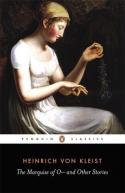 9. The Marquise of O— and Other Stories by Heinrich von Kleist (1777–1811). The ultimate plotter—intricately woven stories by a man who plotted even his suicide, making it his worst story, but still imaginative: in a suicide pact with his ill girlfriend, he shot her and himself under a willow tree after drinking 3o cups of coffee and several bottles of wine. He was only 31.
9. The Marquise of O— and Other Stories by Heinrich von Kleist (1777–1811). The ultimate plotter—intricately woven stories by a man who plotted even his suicide, making it his worst story, but still imaginative: in a suicide pact with his ill girlfriend, he shot her and himself under a willow tree after drinking 3o cups of coffee and several bottles of wine. He was only 31.
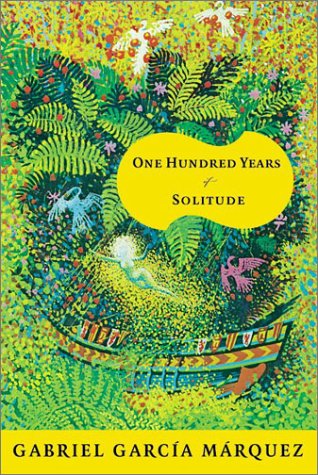 10. One Hundred Years of Solitude by Gabriel García Márquez (1967). Simultaneity of past, present, and future in many sentences with unexpected images got me.
10. One Hundred Years of Solitude by Gabriel García Márquez (1967). Simultaneity of past, present, and future in many sentences with unexpected images got me.